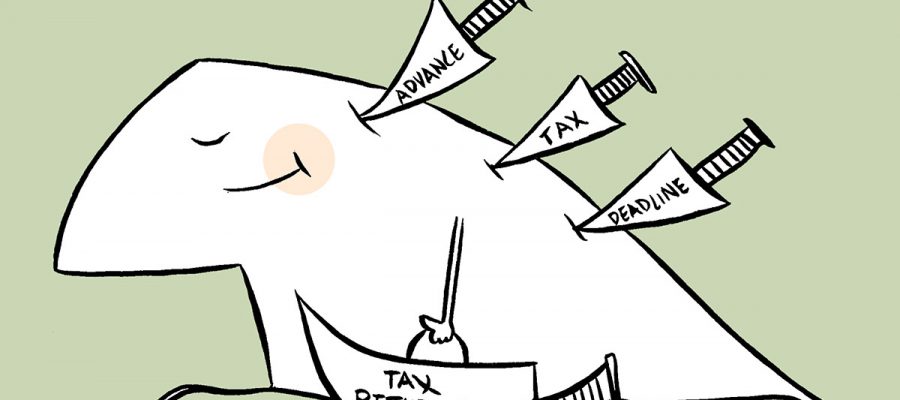Salaried persons whose liability is fully deducted as tax deducted at source by their employer need not worry about advance tax payments, unless they have other sources of taxable income.
Advance tax is payable on estimated income. It needs to be paid in the year in which the income is earned instead of as a lump sum at the time of filing the tax return.
Think of it as a pay-as-you-earn tax.
Paying a huge amount of tax at one time can be burdensome.
Pallav Pradyumn Narang, partner, CNK says, “Advance tax serves the purpose of ensuring the timely and regular payment of tax throughout the year.”
Who pays and who doesn’t?
Every person whose estimated tax liability is Rs 10,000 or more in a financial year is required to pay advance tax.
Pradeep Kumar Jain, managing partner, Singhania & Company, says, “A person here includes individuals, companies, trusts, the Hindu Undivided Family (HUF), firms, societies, the Association of Persons (AOPs), etc.”
Salaried persons whose liability is fully deducted as tax deducted at source (TDS) by their employer need not worry about advance tax payments, unless they have other sources of taxable income.
Ankit Jain, partner, Ved Jain & Associates, says, “However, salaried taxpayers who have income from sources such as interest, rental income, capital gains, and other sources are required to pay advance tax.”
Advance tax payment is more relevant to the non-salaried.
“Taxpayers who have opted for the presumptive taxation scheme for business or profession under Section 44AD or 44ADA also have to pay advance tax,” says Nikhil Varma, managing partner, MVAC.
Non-resident Indians are only liable to pay tax in India on income generated in the country.
Narang says, “If their income is subject to TDS, they may not be required to pay advance tax.”
Jain from Ved Jain & Associates, says, “Interest earned from the Non-resident external (NRE) account is exempt and no tax is required to be paid on it.”
Varma explains that resident senior citizens who do not have income from business or profession are not liable to pay advance tax.
They can deposit the entire tax amount at the time of filing their return.
Beware of penalties
Penalties are levied under Sections 234B and 243C if taxpayers miss the payment of advance tax.
Jain from Singhania & Co, says, “The penalty is in the form of interest for default in payment and is levied at one per cent simple interest per month or part of a month.”
Varma adds, “If you miss the prescribed deadline for payment, you may still pay advance tax before March 31 of the year, and such payment will be considered as advance tax.”
But what happens if you miss both the March 15 and the March 31 deadline?
Jain from Ved Jain & Associates, says, “If you miss the March 31 deadline, you can still pay the outstanding tax along with interest under Section 234B and 234C.
“Such interest is levied at one per cent per month.”
In such a case, the entire amount of tax, along with the interest and penalties, will have to be paid while filing the tax return.
Points to keep in mind
To calculate advance tax, taxpayers can estimate their income for the financial year after factoring in deductions under Section 80C, 80D, and home loan interest.
Jain from Ved Jain & Associates says, “The tax liability on income has to be paid according to the applicable slab and the tax regime chosen by the taxpayer and can be deposited to the government in instalments.”
Adjustments for any TDS deducted can be made while calculating advance tax. Advance tax payments can be made using Challan 280.
Feature Presentation: Ashish Narsale/Rediff.com
Source: Read Full Article


